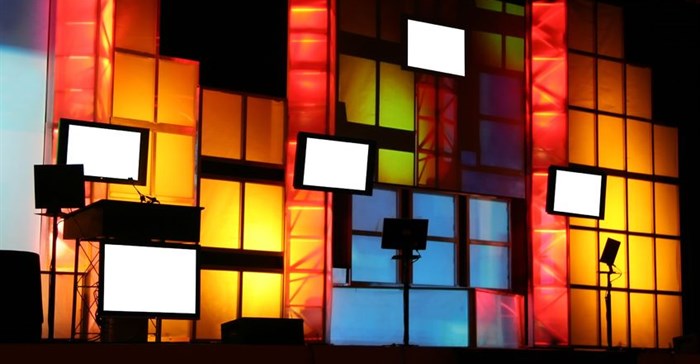How to get the best sound at your event

Sound equipment can be regarded as big and obtrusive, and is often described as “big black boxes”. However, a good technical supplier will go to great lengths to make it as visually discreet as possible. This may lead to the misconception that sound is not a major component of an event if it is not seen. “Sound should be pleasant to the ear and heard clearly and evenly from any seat in the venue. Every audience member deserves the same experience,” comments Magnetic Storm's hire manager, William Preston.
A few sound ins and outs
The ins: for the voice of a presenter to be clear and intelligible, a number of things have to fall in place:
• The correct type of microphone in the right position
• Proper microphone use or technique by the presenter
• Adjustments to the signal to compensate for inconsistencies in the presenter’s voice
• Adjustments to accommodate the room’s acoustics
The outs: the signal from the microphone then needs to be amplified in order for the audience to hear. This is done by means of a loudspeaker, the following needs to be considered:
• Type and size of loudspeaker
• Correct number and placement for even coverage
• The need for additional equipment such as power amplifiers, crossovers etc.
Equipment
All microphones convert sound into electrical energy, but there are many different types of microphone, each designed to meet a specific range of needs. A good sound engineer will know which mic is best for which application, e.g. drums, vocals, guitar etc.
The essential job of any loudspeaker is to convert electrical energy to acoustic energy as accurately and efficiently as possible. Though our hearing range decreases with age, the human hearing range is usually considered to be 20Hz to 20KHz and this is generally accepted as the frequency range over which a well designed sound system should operate.
To reproduce low frequencies effectively, it is necessary to move a lot of air, which is why bass speakers have larger diameters than high-frequency speakers. Hence “Big Black Boxes”.
One of the biggest physical limitations in any speaker is its ability to reproduce the entirety of the frequency range at the same time. When the frequencies get down to the ‘extended low-end frequencies’ created by bass instruments and most synthesizer music, they’re impossible for a high-frequency driver in a loudspeaker to recreate. The audio range is best shared between speakers of different sizes, so that each can handle the section of the audio spectrum to which it is more suited.
Sound, for example, through music, is still the most intense form of emotional expression that humans have created within their culture. The use of low frequencies can provoke a primitive reaction to rhythm, often coinciding with that of our own heartbeat. We feel it more than hear it. Think about adventure films and dance music – the bass delivers the adrenaline. At your next event, ask the sound technician to turn off the subwoofers during a rehearsal of your musical cue. You will hear and feel the difference.
Getting the best sound when performing/presenting
Nervous presenters
Some presenters are afraid of the microphone and will stand too far away or speak with a soft voice. Even a great sound technician will not be able to adjust the volume enough for them to be heard. A short coaching session between a nervous presenter and sound technician should remedy this. As a presenter:
• Always face the microphone when speaking at a podium. Avoid turning your head away while speaking
• Maintain a consistent distance from the microphone as close as possible while still being comfortable and relaxed
• If holding a mic, be aware of hand gestures to avoid moving mic around
• Speak loudly and clearly into the mic and hold it close to, and in front of, the mouth.
Active presenters
Similarly, some presenters are very energetic and constantly moving around a static microphone. Prepare your speakers and brief them properly, or…
• Make use of a wireless headset/lapel microphone, allowing freedom of movement
• Always project with clear pronunciation
• Avoid excessive breathing into the mic as this creates popping sound
Make sure performers can hear themselves
It is not just your audience that needs to hear performers, but the performers need to hear themselves and each other. The sound mix created for performers is called 'foldback', This is done by means of monitor speakers on the stage floor or can also be in-ear headphones. Both options can have any mix required, depending on the sound desk being used.
Usually, foldback can be handled by the same mixing desk working with the audience sound, but for large musical and vocal ensembles and events with multiple acts, the best option is to have a separate mixing desk and operator just for the stage sound.
Listen up
Everyone has a story about bad sound; too loud, plagued by feedback, patchy speakers, too hard to understand what was being said… but how many people talk about an excellent sound experience? Sound technicians often speak of the perfect job as being one where they were not noticed at all...
About Glenn van Eck
View my profile and articles...